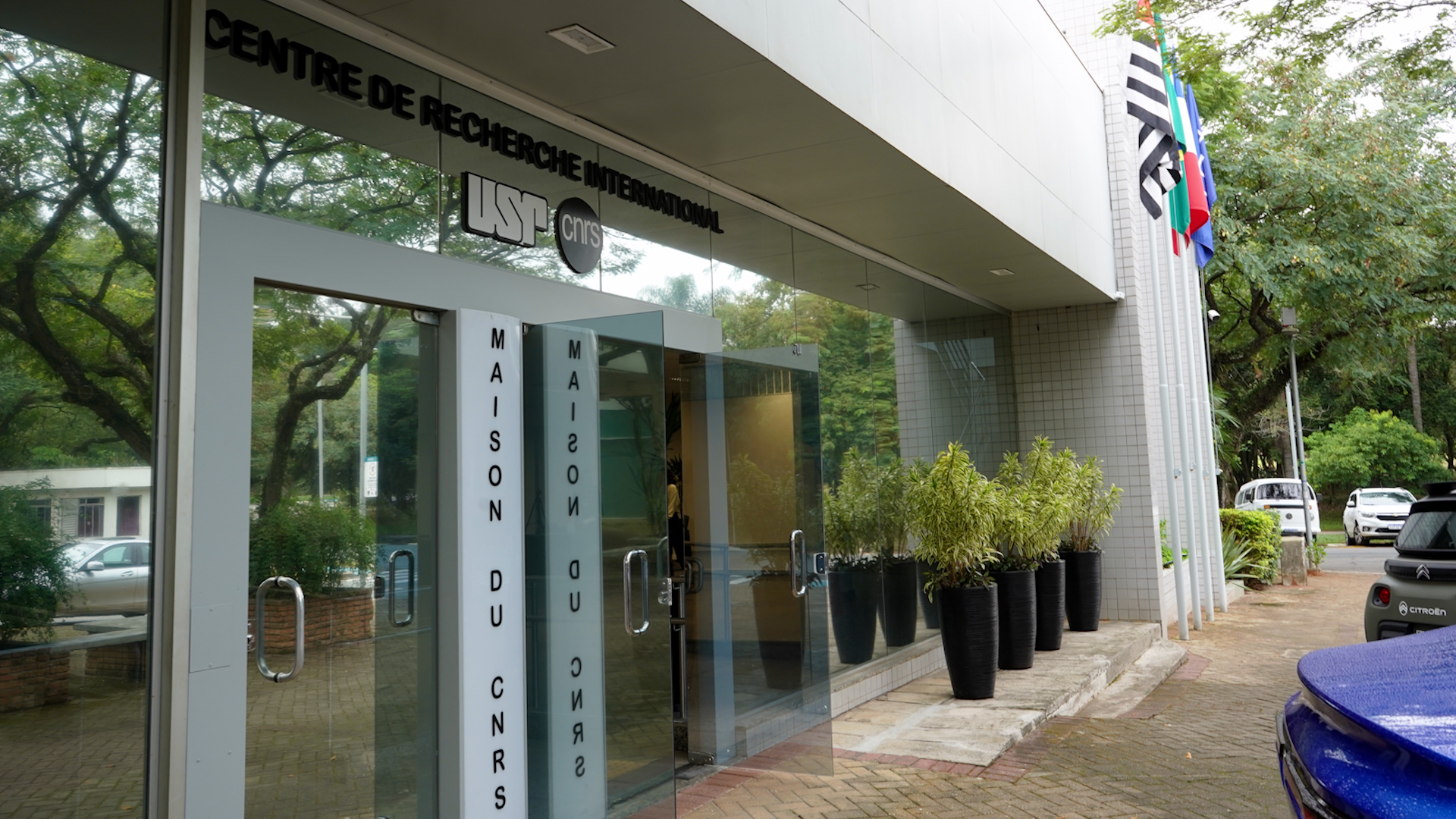


The first CIP to join the new program is the “Transitions” International Research Center, launched by the French CNRS and USP (photo: Daniel Antônio/Agência FAPESP)
Published on 03/24/2025
By Elton Alisson | Agência FAPESP – FAPESP has launched the International Research Center (CIP) program, with the aim of stimulating the creation of international centers set up by world-renowned scientific entities in partnership with São Paulo’s universities and research institutions.
“The purpose of the CIP is to make it possible to consolidate São Paulo as a collaborative research environment of international excellence, where foreign scientists can effectively work together with young researchers at the start of their careers and graduate students from São Paulo,” Marcio de Castro, FAPESP’s scientific director, told Agência FAPESP.
According to the director, nine CIPs are expected to be created in the coming years, at universities or public or private research institutions.
Each CIP will be able to receive resources from FAPESP of up to BRL 30 million over a five-year period. The funds can be mobilized by the partner institutions according to the support instruments provided by FAPESP: grants for doctoral students, post-doctoral students and internships abroad, support for young researchers and the acquisition of multi-user equipment.
“The CIPs will have a defined budget for research projects, previously approved by the two partner institutions and evaluated by FAPESP, in strategic areas for the state of São Paulo and at the frontiers of knowledge. The idea is that these collaborative projects will allow not only São Paulo researchers to go abroad, but also international groups of scientists at different career levels to come and stay in São Paulo,” explains Leandro Colli, FAPESP’s international collaborations advisor.
According to Colli, one of the requirements for the establishment of the CIPs is the presence of researchers linked to the international partner institution in the research centers.
“The purpose of the CIPs is to establish long-term institutional partnerships that allow for the free exchange of undergraduate and graduate students and researchers,” he says.
São Paulo’s universities and research institutions will be responsible for identifying and establishing partnerships with international institutions to establish the CIPs. The economic counterpart will be in the form of salaries for researchers and support staff, infrastructure and facilities for the centers. The international institutions will be responsible for paying the salaries of their researchers and helping them to stay in São Paulo.
“We believe that the CIPs will have an important impact on the state’s science, technology and innovation community since they will maintain strong international collaboration,” says FAPESP’s scientific director.
First CIP
The first CIP to be part of the new program is the “Transitions” International Research Center (IRC), launched by the French National Center for Scientific Research (CNRS) and the University of São Paulo (USP).
The IRC, which was inaugurated on the USP campus in São Paulo in March 2024, is the sixth IRC created by the CNRS in partnership with a university in the world. The institution has already established similar partnerships with the Universities of Arizona and Chicago (United States), Imperial College London (United Kingdom), the University of Tokyo (Japan) and the University of Sherbrooke (Canada).
The main mission of the Transitions IRC is to stimulate interdisciplinary research that addresses complex global challenges in the humanities and social sciences, ecology and the environment, oceanography, biology, quantum technologies, computing methods and applications, and agriculture and decarbonization.
“The Transitions IRC has reached an important milestone and has undergone a strategic evolution of great importance by becoming, since the end of February, the first International Research Center funded by FAPESP. This represents a paradigm shift in international scientific cooperation,” says Liviu Nicu, director of the CNRS office in South America and scientific director of the center.
“For the CNRS, whose commitment to Brazil and in particular to the state of São Paulo is longstanding and far-reaching, this recognition has fundamental strategic value, as it reflects the importance that our Brazilian partner attaches to long-term scientific collaboration and its continuous strengthening,” he said.
Some of the progress made during the first year of the IRC included the establishment of two international research laboratories (IRLs). The first IRL, with a focus on biology, is located on the USP campus in Ribeirão Preto and aims to advance the understanding of immune and inflammatory responses, particularly those associated with chronic pulmonary and neurological inflammation.
The second, called “Worlds in Transition,” is dedicated to the humanities and social sciences and is located on the USP campus in São Paulo. The research aims to explore complex global transformations, including climate change, energy transition, and the impact of artificial intelligence.
“France has a long history of cooperation with USP, particularly in the humanities. French researchers participated in the founding of the university in 1934. But this scientific collaboration has been very much based on personal networks, maintained by researchers who went to France for their Ph.D. or post-doctoral work and established a network of cooperation that’s often broken when they retire, for example,” says François-Michel Le Tourneau, research director at the Worlds in Transition IRL.
“The aim of setting up this laboratory at USP, in São Paulo, is to better structure and increase cooperation, allowing for permanent dialogue and the existence of these scientific collaboration networks in the long term,” explains the geographer.
One of the first initiatives of the laboratory’s researchers will be to map the network of scientific cooperation between French and Brazilians in the humanities, which, unlike in the exact sciences and health, for example, is more difficult to measure because scientific production is not backed up by scientific articles, noted Le Tourneau.
According to Marco Antonio Zago, president of FAPESP, the laboratory could become a structuring initiative to consolidate scientific collaboration in the humanities in the state of São Paulo.
“We have high expectations that this will be a structuring and long-term initiative in scientific cooperation in the humanities between the state of São Paulo and France,” he concluded.
Source: https://agencia.fapesp.br/54270